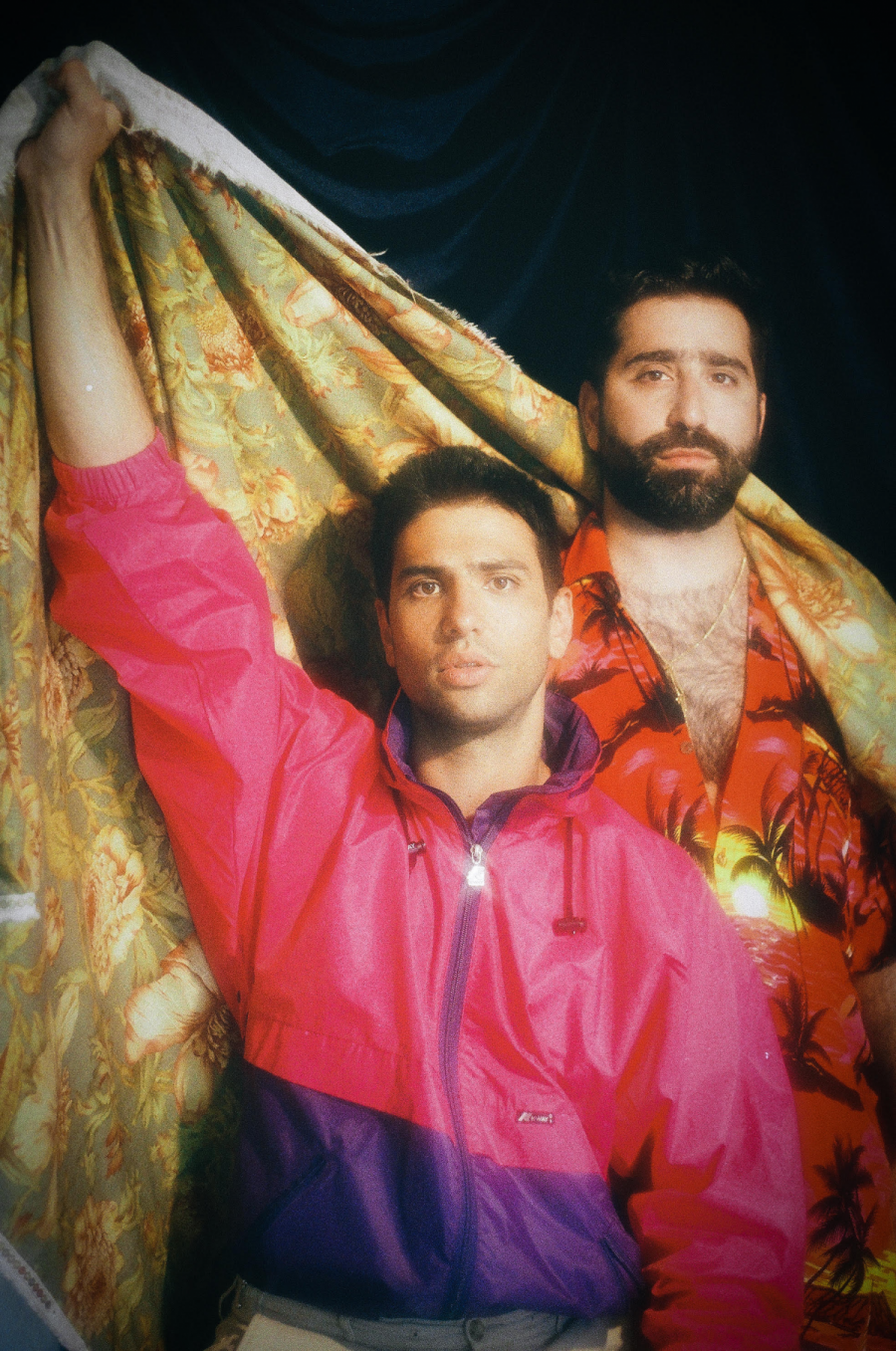Techno duo Wake Island shows us hope is more than a pipe dream
Lebanese musicians look back on how far they’ve come in new EP ‘Born to Leave’
Wake Island, the electronic producer duo known for their nostalgic pop melodies and unstoppable techno beats, is proud to announce their latest full-length project, Born to Leave, set to be released at the end of April.
Lebanese natives Phillipe Manasseh and Nadim Maghzal split their time between Montreal and New York. Over the years, the duo has made itself a staple of the cities' queer and techno scenes.
Since the release of their last EP, Sentimental Animals, the pair had been eager to reconnect with their roots. This record, produced from their bedrooms over the past two years, was initially meant to be released in 2020. However, upheavals in Lebanon prompted the two to postpone.
2019 in Lebanon saw thousands gathering in its streets to demand a change in government, and 2020 brought Beirut's cataclysmic port explosion and the return of the old regime. Now, in 2021, the country faces the most exhaustive financial collapse in its history.
"Lebanon is baking with ingredients that don’t mix," said Manasseh of the country's sectarian politics. Nevertheless, the pair remains optimistic.
"There were better times in the area. There was a plausible dream of unity," said Maghzal. “We want to tell people that these things can be solved. It’s a matter of untying the knot over here so we can tie it over there,” Manasseh added.
In Born to Leave, the duo comes to terms with life’s cycles of pain and peace.
“It’s really about coming full circle and recontextualizing the past in a way so that we can learn from it,” said Manasseh. “With the situation in Lebanon, we’ve seen huge waves of people coming over here, and we saw our story being repeated.”
The album’s lyrics explore the conflicting emotions of the immigrant experience. In “Comme ça”, Manasseh sings: “I left everything. I dropped it, like that. I lost my tongue—Once, twice, like that. Slowly, breath, go forth. I’m a stranger in my neighbourhood, just like you.”

However, Wake Island does more than just express this alienation; it aims to counter it. In collaboration with Syrian DJ Saphe Shamoun, the group hosts Laylit, a Montreal/New York party as much for dancing as it is for community building. The event aims to make North African and Middle Eastern music more accessible to those both inside and outside the community.
“The Arabic music, if nothing else, provides a respite from [pop]. But on top of that, Laylit provides a place to meet with other Arab individuals who appreciate Arabic music in its many different forms. To me, that’s the most important [part],” said Nadim Atalla, a New York fan, in an interview with Bedford + Bowery.
Loneliness is a common byproduct of immigration. Manasseh and Maghzal recall the culture shock of first arriving in Montreal. “It was very isolating,” said Maghzal. “I didn’t have any of the same cultural references or experiences. People kept telling me, ‘You’ve never seen Seinfeld?’”
The two found themselves living in the same apartment building. One night, Maghzal heard Manasseh jamming with a friend and asked to join. By 2008, the two had become friends and formed their first band, a jazz and prog rock inspired outfit named Intensive Care.
However, nine years later, the group’s sound veered decisively in another direction.
“Rock music had hit a wall culturally. But in techno, you could bring whatever you wanted,” Maghzal said. “We got very inspired by the origins of the movement, the music, its importance in community building and in uniting people when big forces are trying to pull us apart.”
Wake Island’s pleas for unity are key to their message. “We wanted to focus on where our identities overlapped with those of others, not where they differed,” said Manasseh. “We could try appealing to just the queer Arab community, but we’d much rather reach everyone.” The album’s eclectic sound, a trilingual cocktail of ‘90s synths and samplers and traditional Middle Eastern instruments, embodies this approach.
“We wanted to focus on where our identities overlapped with those of others, not where they differed.” — Phillipe Manasseh
“We wanted to give a model of someone who could be themselves and still be Lebanese,” said Manasseh. After their migration, the pair felt as if they had lost touch with themselves and their roots, but now describe themselves as hybrids. “We feel lucky to have been able to take the best of both worlds,” their Terrorbird page reads.
Nonetheless, Manasseh recognizes that embracing one’s identity is not just an individual journey.
“We see people finding refuge in their identities and hiding from the world that way. But you don’t want to mix identity and individualism,” he continued.
Although reinforcing community is one of the band’s chief objectives, Manasseh is eager to think bigger. The group has gotten to a place where they can look beyond society’s current problems with polarization.
Similarly, Maghzal is also looking forward to a more united future. “Don’t we want to get to a place where [conflicts of identity] aren’t even issues?” he added.
Wake Island’s ethos speaks to taking down borders, both cultural and geographic.
“It’s important we unlink cultural behaviors from their origin. It’s not just the culture of whoever had it first,” said Manasseh. As an example of the type of universality he’d like to reach, he cited Lebanon’s most widely spread cultural touchstone: hummus. “Now everyone eats it, and they don’t even think of it as Lebanese.”
“Diasporas are the solution. Eventually, all kinds of people will be everywhere,” said Maghzal. “This is why it’s so important not to erase yourself. We want to get to a point where diversity isn’t divisive.”
As far as releasing music during a pandemic, neither is really worried. “When you release a record, it’s not an end. It’s the beginning of its life,” said Manasseh.
An interactive website, bringing together elements of web design and performance art, will accompany the album. Manasseh adds that a documentary may also be on the horizon. “This release will be very chill,” he said, smiling.
Born to Leave is set to release independently on April 30.


_600_832_s.png)




